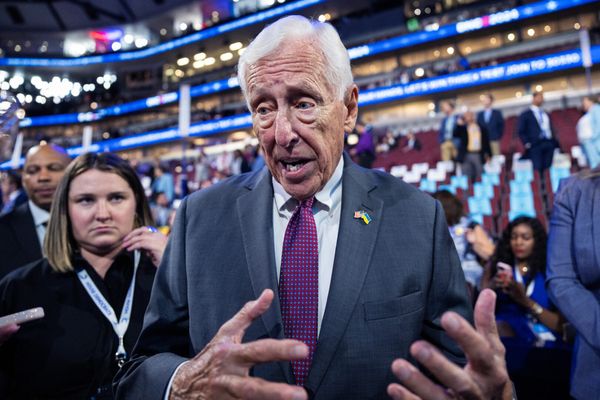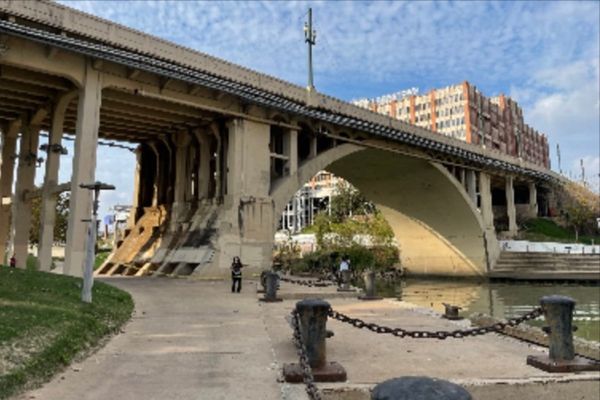
Mark Dreyfus has accused the opposition leader, Peter Dutton, of asking “a lot of questions he knows the answer to” about the Indigenous voice, but promised some further detail before the referendum.
The attorney general told Guardian Australia on Monday he welcomed Dutton’s comments over the weekend endorsing constitutional recognition, but warned the Liberal leader’s demand for detail already in the public domain was “not particularly constructive”.
Dreyfus said there was “already a lot of information out there and there will be more”.
“It will be made even clearer that it’s not going to be a veto [on parliament] … that it will be for parliament to determine [the voice’s] form and function, that it will be a representative body chosen by Aboriginal and Torres Strait Islander people.”
The Albanese government has said it will have a referendum in the second half of 2023 to enshrine the voice in the constitution, as requested by Indigenous Australians in the Uluru Statement from the Heart.
Labor is hoping Dutton and the Liberals will break from their Nationals colleagues, who oppose the voice, in an effort to build a broad coalition in favour of constitutional recognition.
Earlier in January, Dutton wrote to the prime minister, Anthony Albanese, suggesting that the Indigenous voice could be legislated before a referendum. Dutton asked 15 questions seeking further details about the body.
My letter to the PM on behalf of millions of Aussies who just want the detail. pic.twitter.com/rN5REotykj
— Peter Dutton (@PeterDutton_MP) January 8, 2023
Albanese ruled out legislating the voice before the referendum because Indigenous Australians asked for constitutional entrenchment.
“That’s been our stance since the election – we are here implementing an election commitment,” Dreyfus said.
In an interview with the Sun-Herald on the weekend, Dutton said that he did “support constitutional recognition of Indigenous Australians” but accused Labor of playing a “tricky, but dangerous political game in holding back the detail on how the voice would operate”.
“The Australian public won’t vote for something the prime minister refuses to explain,” he said.
“This makes it essential to release the detail, in the form of a draft bill and regulations. This would be the respectful thing to do instead of keeping Australians in the dark.”
On Monday, Dreyfus said he welcomed Dutton’s support for recognition, but added that he was hoping to see “a demonstration of that support by engaging constructively in the debate”.
The attorney general added that he hoped the opposition leader “sees in this referendum the opportunity for national leadership that he’s presented with and I’m hoping he takes up that opportunity”.
Dreyfus said the government had not presented more detail because the referendum was a “matter of principle” about recognising Indigenous Australians with the voice, but it would be “a matter for parliament to determine the form and functions and that will follow”.
“Parliament is supreme and parliament will determine what that structure looks like.”
Dutton’s questions included whether the voice would be purely advisory or have decision-making capabilities, a question the government has answered.
Another, about how the government would define Aboriginality, was quickly dismissed by First Nations referendum working group member Tom Calma as a “non-issue”.
Dreyfus said “a lot of the questions Mr Dutton posed he already knows the answers to”.
“I point to the statements Anthony Albanese has already made, that I’ve made, and the statements that the working group … have made as to the key principles.”
The Indigenous affairs minister, Linda Burney, has accused critics of the voice of trying to “mislead” Australians.
This year, Australians will have their say on whether they want to improve the lives of Indigenous Australians by establishing the Voice.
— Linda Burney MP (@LindaBurneyMP) January 15, 2023
Unfortunately, there are some who want to mislead you about the Voice.
Here are the facts about what the Voice will be… 🧵
Burney said the principles set out by the working group included that the voice would: provide independent advice to parliament and government; be chosen by First Nations representatives; and be accountable and transparent. She said it would not deliver programs or have a veto power.
For too long government has made policy for Aboriginal & Torres Strait Islander Australians, not with them.
— Linda Burney MP (@LindaBurneyMP) January 15, 2023
Our people have solutions, they need to be heard. The Voice will be an advisory body.
7) The Voice will not deliver programs.
8) The Voice will not have a veto power.
Asked about Dutton’s decision to boycott the apology to the stolen generation in 2008, for which he later apologised, Dreyfus said that Dutton’s “regret as to what he did tells us a great deal more about what’s happening now than going back … and looking at the way he acted on 13 February 2008”.
“Since then he’s expressed regret for what he’s described as decades of failure in the implementation of policies for Aboriginal and Torres Strait Islander people.”
“I think the voice offers a way to deal with those decades of failure.”







